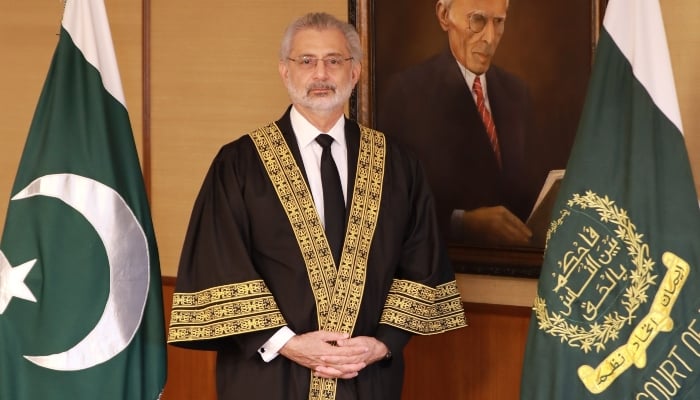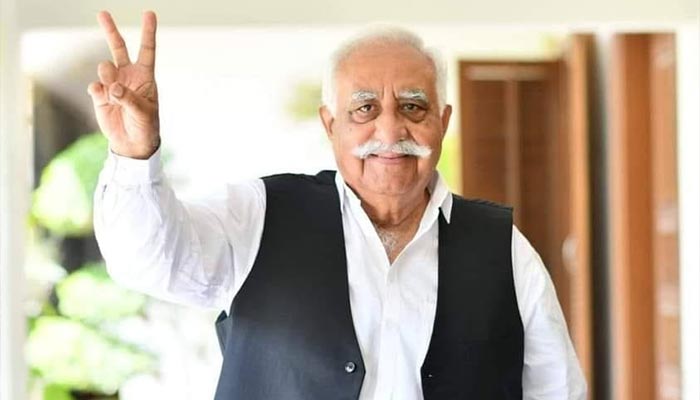ISLAMABAD: A social media user suspected of being involved in a threatening campaign against Chief Justice of Pakistan (CJP) Qazi Faez Isa has been arrested.
The sources said the suspect had been identified as Abdul Wasay — a resident of Rawalpindi. They said the suspect ran a “threatening campaign” against CJP Isa on social media. He threatened the chief justice and tried to tarnish his image, they added.
“The rest of the people involved in the campaign will be identified and legal action will be taken against them,” they said.
Meanwhile, the government has constituted a joint investigation team (JIT) to probe the elements involved in defamatory campaigns on social media against the Supreme Court judges, Election Commission of Pakistan (ECP) and government officers.
Led by FIA Cybercrime Wing’s additional director general, the JIT would start its work today (Thursday).
The forum would comprise a 20-grade officer of the Inter-Services Intelligence (ISI), a 20-grade officer of the Intelligence Bureau, an Islamabad Police deputy inspector general, a representative of the Pakistan Telecommunication Authority and any other co-opted representative, including an IT expert.
“The JIT has been tasked to investigate mainly three specific points.
“To ascertain facts behind malicious social media campaign attempting to malign the image of honourable judges of the Supreme Court of Pakistan, to identify and to bring the culprits to book in accordance with the relevant laws and cause presentation of challans in the courts concerned, and to recommend measures for prevention against the occurrence of such incidents in future,” read the notification.
The JIT would submit a preliminary report to the Interior Ministry within 15 days.
Meanwhile, a government spokesperson told the media that no one is allowed to indulge in malicious activities to weaken the democratic process through deceitful means.
The JIT has been tasked with probing various activities, including the dissemination of false information on social media platforms, the printing of fake ballot papers, and propaganda aimed at influencing public sentiment, he said



